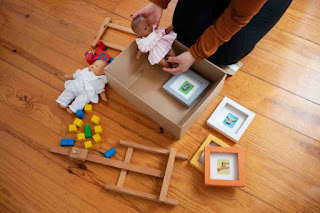Importance of Play: How Wooden Toys Foster Learning
Beyond their aesthetic charm, wooden toys play a pivotal role in fostering learning and development in young minds. Wooden toy cars and trucks are exemplary additions to the world of educational play. This blog explores the importance of play, particularly through the lens of wooden toys, in shaping a child's cognitive, emotional, and social growth.
Holistic Development Through Play
Play is the language of childhood, and it serves as a powerful tool for holistic development. Wooden toys, with their simplicity and tactile nature, engage children in open-ended play that stimulates creativity, problem-solving skills, and imagination. Such unstructured play is essential for developing a well-rounded set of cognitive abilities.
Sensory Stimulation and Motor Skills
Wooden toys often have a tactile quality that encourages sensory exploration. The natural textures and smooth surfaces of wooden blocks, puzzles, and toys stimulate a child's sense of touch and contribute to the refinement of fine motor skills. Manipulating wooden objects also enhances hand-eye coordination, an essential skill in various aspects of a child's life.
Imagination Enhancement
Wooden toys, devoid of flashy lights and predefined functions, encourage imaginative play. Whether it's building structures with blocks or creating make-believe scenarios with wooden figures, these toys allow children to explore their creativity freely. Imagination is the precursor to innovation, and wooden toys provide a canvas for young minds to paint their own imaginative worlds.
Durability and Sustainability
Wooden toys are renowned for their durability, standing the test of time and generations. Unlike many plastic toys that may break easily, wooden toys are sturdy and long-lasting. The durability of these toys not only ensures extended playtime but also promotes sustainability by reducing the environmental impact associated with disposable toys. Integrating wooden toy cars and trucks into a child's playtime not only adds a fun element but also contributes significantly to their holistic development, making learning a joyous and interactive experience.
Enhanced Cognitive Skills
The simplicity of wooden toys often requires children to engage in open-ended problem-solving. Whether it's fitting shapes into corresponding holes or arranging blocks to build structures, these activities stimulate cognitive skills such as spatial awareness, pattern recognition, and logical reasoning. The process of trial and error during play contributes to the development of a resilient and adaptable mindset.
Social Interaction and Emotional Development
Wooden toys, especially those designed for cooperative play, facilitate social interaction among children. Sharing, taking turns, and collaborating on projects with wooden toys contribute to the development of social skills and emotional intelligence. Learning to navigate social situations during play prepares children for effective interpersonal relationships in later life.
Reduced Screen Time and Enhanced Focus
In an era dominated by screens, wooden toys offer a welcome respite. Engaging with these toys allows children to disconnect from digital devices, reducing screen time and its associated impacts. Wooden toys encourage focused, uninterrupted play, promoting sustained attention spans and a deeper connection with the physical world.
Educational Versatility
Wooden toys come in a variety of educational forms, from alphabet puzzles to math games. These toys seamlessly integrate learning into play, providing an enriching experience that supports early educational milestones. The subtle educational aspects embedded in wooden toys contribute to a child's academic readiness without the need for formal instruction.
Conclusion
In a world where technological advancements often dominate the landscape of children's play, the enduring importance of wooden toys cannot be overstated. These timeless playthings foster a rich learning environment, encouraging creativity, enhancing cognitive skills, and nurturing social and emotional development. As parents and educators seek ways to provide a balanced and enriching childhood, incorporating wooden toys into a child's playtime emerges as a wise and timeless choice, contributing to the cultivation of well-rounded, imaginative, and socially adept individuals.
Source Link - https://writeupcafe.com/importance-of-play-how-wooden-toys-foster-learning/
.jpeg)



Comments
Post a Comment